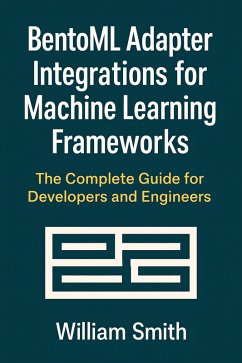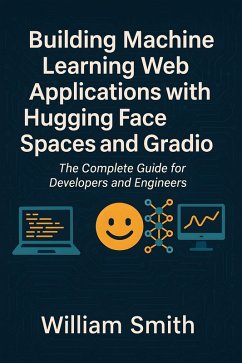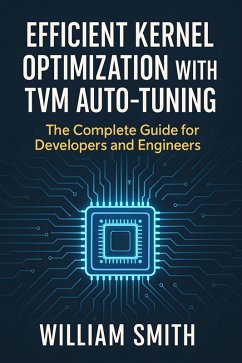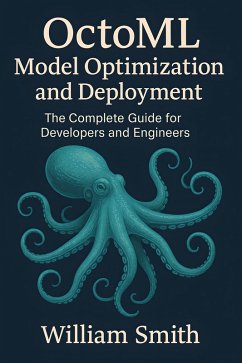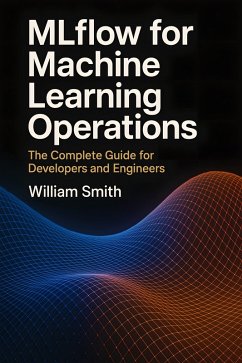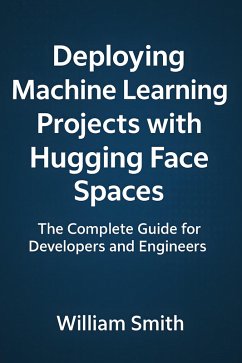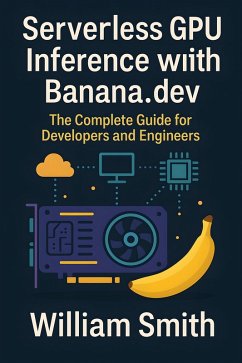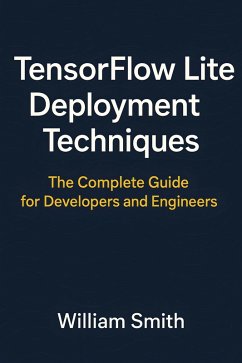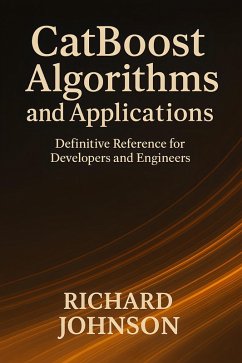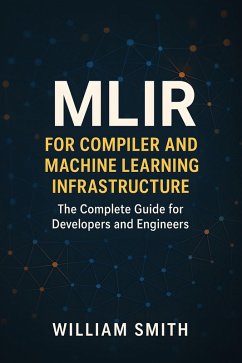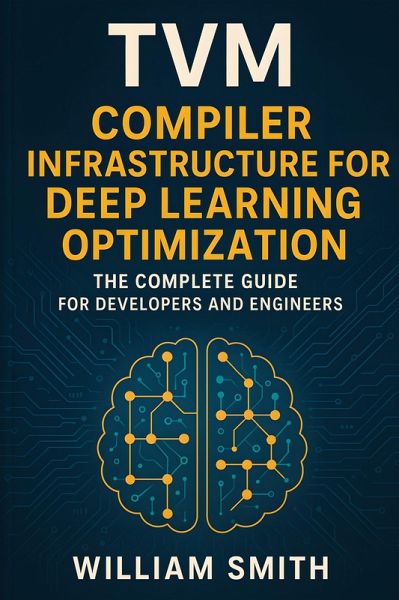
TVM: Compiler Infrastructure for Deep Learning Optimization (eBook, ePUB)
The Complete Guide for Developers and Engineers
Sofort per Download lieferbar
8,52 €
inkl. MwSt.

PAYBACK Punkte
0 °P sammeln!
"TVM: Compiler Infrastructure for Deep Learning Optimization" "TVM: Compiler Infrastructure for Deep Learning Optimization" delivers a comprehensive exploration of the principles, architecture, and cutting-edge techniques underlying TVM-a pioneering open-source compiler stack designed to optimize and deploy deep learning models across a diverse range of hardware backends. Beginning with an incisive overview of why traditional compilers fall short for deep learning workloads, the book guides readers through key foundations such as computational graph abstractions, intermediate representations, ...
"TVM: Compiler Infrastructure for Deep Learning Optimization" "TVM: Compiler Infrastructure for Deep Learning Optimization" delivers a comprehensive exploration of the principles, architecture, and cutting-edge techniques underlying TVM-a pioneering open-source compiler stack designed to optimize and deploy deep learning models across a diverse range of hardware backends. Beginning with an incisive overview of why traditional compilers fall short for deep learning workloads, the book guides readers through key foundations such as computational graph abstractions, intermediate representations, and performance-driven compilation strategies that empower model portability and efficiency. The text meticulously details TVM's layered system architecture, covering components such as the Relay high-level IR, the tensor expression language and scheduling primitives, as well as framework integration and extensibility for custom operators and hardware targets. Advanced chapters delve into specialized topics including graph transformations, backend-specific code generation for CPUs, GPUs, NPUs, and FPGAs, and fine-grained scheduling optimizations enabled by AutoTVM and meta-scheduling. Practical insights into memory management, automatic differentiation, and debugging tools illuminate the complexities of optimizing neural networks for both cloud-scale and edge deployments. With dedicated sections addressing deployment pipelines, security, interoperability with serving and cloud-native infrastructure, and best practices for extending the ecosystem, this book serves as both an in-depth reference and a practical guide for engineers, researchers, and practitioners. The concluding chapters look toward the frontier of the field-discussing formal verification, privacy-preserving compilation, sparse workload optimization, and anticipated hardware trends-making this an indispensable resource for anyone involved in deep learning systems, compiler design, or hardware-software co-design.
Dieser Download kann aus rechtlichen Gründen nur mit Rechnungsadresse in A, B, BG, CY, CZ, D, DK, EW, E, FIN, F, GR, H, IRL, I, LT, L, LR, M, NL, PL, P, R, S, SLO, SK ausgeliefert werden.




